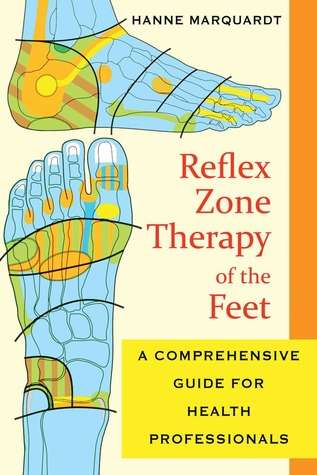If you are considering couples counseling for the first time, you may be wondering what to expect from the first session.
You might think, “What will it be like?” or “Will I be antagonized by the therapist or my spouse?” You also may be skeptical of therapy even working for your relationship. A lot of fears and stigmas that stem from the idea of couples counseling are often put to rest after a couple attends their first therapy session.
You Will Meet Together as a Couple
When you meet the therapist for your first session, you and your partner will meet the therapist together (rather than individually). Most of your sessions will be together, apart from one or two individual sessions. The purpose of the individual session is for the therapist to receive some background and history on each of you separately and give the counselor a chance to be more understanding to each of your specific needs.
After that initial session together, you may have one (maybe a second) individual session, and for the rest of your sessions, you and your partner will be working together on your relationship issues. The first session will set the stage for what you can expect during future sessions, and will prepare an environment where you and your partner can be encouraged to express your feelings and past experiences together.
Address History of Relationship Distress
During the first session, expect to discuss the history of your relationship distress. The therapist will want to know the main problems you are experiencing, and what causes most of your stress within the relationship.
Some aspects of relationship stress that may be discussed include parenting conflicts, intimacy issues, and communication issues (or other types of distress). It is essential to be open and honest about your relationship history with your therapist because it is the basis for setting goals in counseling. Once the significant issues of your relationship are highlighted, you will all work together to find ways to improve those areas of distress within your relationship.
Goals Setting
Goal setting is very important to understand when it comes to therapy. As you attend your first session, you will set goals for the relationship. The goals you set will help you and your partner to experience more positive interactions and connectedness.
What if you don’t really know what your goals should be? It’s okay – it’s the first session. If you are unsure of where to start with goals, your therapist can help you to set your first goals.
Contrarily, if you know what goals you want to work on together, that can be a great start. Based off your relationship history, you and your partner can determine goals to propose to your therapist. Either way, your therapist will be there to guide you and your partner to a place of peace and connectivity.
What if Our Goals are Different?
Every person that goes to counseling has different goals, which means you and your partner may have different perspectives. You could be going into counseling hopeful that the relationship is worth fighting for, while your partner is not so sure. This could make your initial goals a bit different from each other.
Despite differing perspectives shared during the first session, it doesn’t mean that the relationship is doomed. Both of you can still work together with the therapist to find healing and improvement for your relationship. The overall goal is to achieve confidence in yourselves individually, and as a couple to move forward in the relationship.
To be successful in couples therapy, you must find balance when working on relationship issues with your partner. Whether you choose to part ways or work through your relationship issues, the therapist will determine a treatment plan that fits your needs, promoting healing and positivity (regardless of the outcome).
You Should Feel Understood
Having a good connection with your therapist is vital if you want to have productive counseling. Your therapist should display empathy and understanding toward both of you during your sessions.
For example, if you are expressing concerns with your therapist, you should feel that you are being taken seriously. Confidence in your therapist will leave you feeling relieved and comforted by the fact that you feel understood during therapy.
If not, you will likely not trust the therapist, leading to doubts and distress in therapy (and your relationship).
Feeling understood is more than just being taken seriously. Your therapist should create an environment for you and your partner to openly express your feelings and concerns. You should be encouraged and motivated to achieve your goals, and overtime feel confident that reaching those goals is possible.
Fear of Incompatibility or Divorce
Many people fear that relationship counseling will lead to a therapist encouraging you and your partner to split up – that is not the case.
Counseling is meant to promote healing, not separation. A therapist is not to express whether they think you are compatible or if divorce is in order. Their role is strictly to walk you through the struggles of your relationship by teaching you how to handle your differences, achieve effective communication, and cope with your relationship issues together.
The decision to separate or stay together is entirely up to you and your partner.
Be Vulnerable
Being vulnerable is essential to success in therapy. Vulnerability is allowing yourself to talk about the pain, embarrassment, and insecurities you struggle with in your relationship.
Naturally, you may tend to withhold information at the beginning of your session because your therapist needs to earn your trust. When you start to feel comfortable enough to show some vulnerability, you will receive much better outcomes during therapy.
If you plan on setting and achieving any goals during your time in counseling, you should make it a goal to build a trusting relationship with your therapist in order to feel comfortable expressing your weaknesses.
Clearly, there are a lot of thoughts and concerns that will cross your mind when you try couples counseling for the first time, and that is all completely understandable. Building trust with a therapist can take a long time, as well as healing your relationship. The best way to approach your first few sessions of couples counseling is to go in with an open mind, and be honest with yourself, your partner, and your therapist.
Online Couples Therapy vs. Traditional Couples Therapy
At Talkspace, we’re not just revolutionizing how therapists practice couples therapy. We’re also seeking to reduce the stigma of receiving couples counseling and make couples therapy more accessible and affordable.
Online couples therapy has several advantages when compared to traditional face-to-face therapy. The most obvious benefit is the convenience factor. Time saved by not traveling to and from appointments can be a huge plus. A comfort level also comes with relaxing in a safe space during sessions. Additionally, online therapy can be more flexible in terms of access. Because you don’t have to get to the therapist’s office, you can even dial in from separate locations and still have access to valuable, essential guidance.
The format also provides each partner the time and space to process responses and reflect on what they’ve heard rather than only focusing on what they’ll say next. Some people even find they can explain themselves better, allowing for more open and honest emotional expression. Talkspace couples therapists find the virtual format allows for productive conversations, often resulting in quick treatment progress.
Online couples therapy can be ideal for couples where one or both partners frequently travel or have very different schedules. It removes the barrier of needing to coordinate a time to attend couples therapy sessions together. Couples with children who have difficulty finding childcare can significantly benefit from the accessibility of Talkspace.
You might be wondering, “Does insurance cover therapy?” In-person couples therapy generally isn’t covered by insurance. As a result, it can be quite costly for many families after only a few sessions. Talkspace’s online couples therapy can be a much more affordable alternative.
What to Expect in Couples Therapy: What Actually Happens in Couples Counseling?
 Is your relationship not as strong as it once was? Are you and your significant having trouble communicating or trusting each other?
Is your relationship not as strong as it once was? Are you and your significant having trouble communicating or trusting each other?
Before you throw in the towel, try to repair your relationship back to its healthy state. Studies show that couples therapy is effective at restoring a relationship 75 percent of the time.
Going into your first session of couples counseling can feel intimidating at first. Here’s what to expect in couples therapy and how it actually works.
Reveal Basic Information About the Relationship
Wondering what to expect from couples counseling? The first session is spent learning more about each individual person and your relationship as a couple.
Is important that your therapist or counselor gets to know each of you on a personal level. They can ask about everything from your childhood to how you met each other.
While these facts may seem insignificant to you, they are important to understanding your whole story.
Many people get discouraged after the first session is just a bunch of questions and there’s not a lot of actual therapy happening. Don’t worry, this is just so your therapist or counselor can get to know each of you.
As your sessions continue, they will be more of what you expect.
Get to the Root of The Problems
There can be many different reasons why you are trying couples counseling.
Some of the most common reasons include:
- Having the same arguments over and over
- Never fighting and ignoring the problems
- Physical intimacy problems
Not everyone’s problems will look the same, but identifying your specific problems is an important step.
You may go into therapy thinking that your problem is all based on intimacy. But your therapist could soon discover that your relationship lacks trust and communication.
As you share your concerns, your therapist will look for underlying, connecting themes.
Develop Goals and a Timeline
By pinpointing the root of your relationship problems, you can then develop your goals for therapy.
Every couple’s goals will look different. Maybe you want to fall in love again or understand each other better. Some of your goals can focus on specific skills or just getting through a large adjustment together, such as a job change.
A certain percentage of couples may decide that their goal is to end the relationship on a good note. Therapy can help you realize that your relationship is beyond saving and learn how to let go of it healthily.
Remember that your goals can evolve over the course of your therapy. So your initial goal won’t necessarily be your end goal.
Once you lay out your goals for therapy, you and your therapist will develop a timeline. This will happen once you already go through a few sessions and they get a better idea of where your relationship stands.
Some couples only need a few months of therapy. Other couples may consider therapy a new part of their relationship.
Learn New Skills to Improve Relationship
What happens in marriage counseling? The most important aspect of marriage counseling is learning new skills that’ll benefit your relationship beyond the counseling sessions.
Some of the most important skills in a relationship include:
- Communication skills
- Patience and forgiveness
- Trust and honesty
- Selflessness
- Stress-management
Most couples have had all the essential skills at some point in their relationship but have just forgotten how to use them. Your therapy sessions will remind you of the importance of these skills and show you how they can improve your relationship.
Homework Outside of Sessions
Working on your relationship doesn’t stop once your therapy session ends. In fact, a major part of couples therapy is what happens in between the sessions.
You’ll have tasks, or homework, to complete between each session. It’s important that you take your lessons seriously and complete these tasks if you want the counseling to work.
Some of these homework assignments could include:
- Go out on a date without your phones.
- Get intimate with your partner.
- Keep a log of your emotions and any arguments that arise.
- Read a self-help book together and hold discussions.
The ultimate goal of this homework is to get you to a point where you can work out your issues on your own outside of therapy. You’ll start small with a few tasks but eventually, you’ll be able to tackle any issue that arises.
Attend Both Couple and Individual Sessions
If you’re still wondering what is couples therapy like, you may be surprised that it won’t always be as a couple.
While couples sessions are the basis of the therapy, there are some things you need to work on by yourself. Often times, one of you has skills that the other needs to brush up on.
Or one of you needs one-on-one time to work out trust issues from their past.
Individual sessions are a possibility, but no couples therapy is successful with merely individual sessions. In order to be successful, you need to make sure both you and your significant other are committed to the sessions.
Beyond What to Expect in Couples Therapy
Now that you know what to expect in couples therapy, it’s time to improve your relationship. There’s no time like the present and you have nothing to lose.
Want to start therapy but have limited time? Look into online relationship support.
Our Relationship offers an online program to develop communication skills and to reconnect as a couple. Through the online program, you’ll learn to trust each other again and watch your relationship thrive.
Not sure what to pick? ChoosingTherapy has a useful review of the major options.
Learn How to Improve Your Relationship!
www.ourrelationship.com



